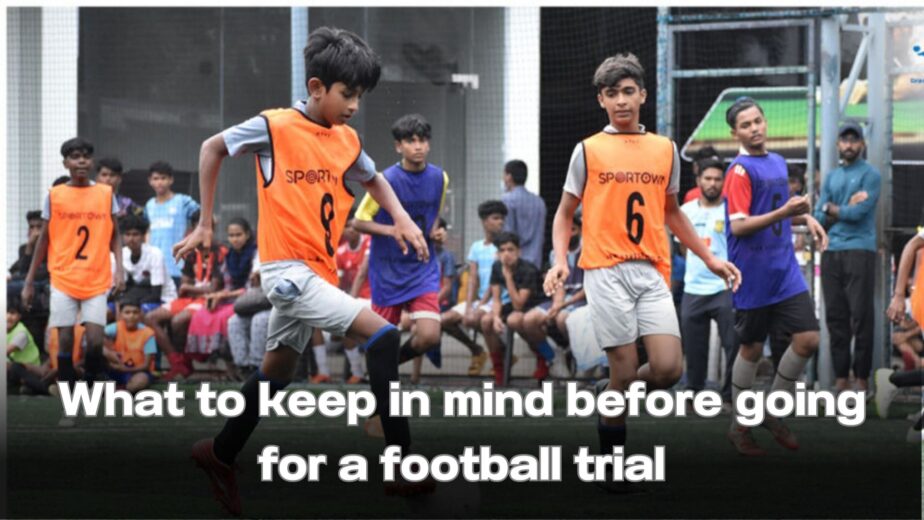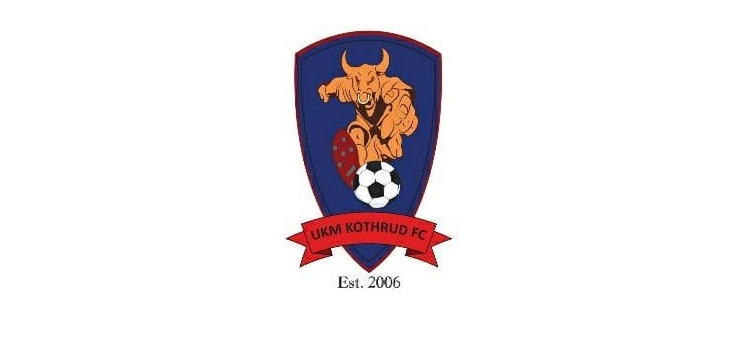The Religious Sentiment in Football in Colonial Calcutta- Part 4

In my last three articles, I wrote on the gradual growth of football in colonial Calcutta since 1858 when the first recorded football match was played in Calcutta. It may be said that the game of football emerged in Calcutta as an elitist sport which was often the exclusive preserve of the ruling class. However, a racial policy was adopted by the British rulers at a later stage to discriminate Indians from them in football. A nationalistic approach was introduced against this racial policy, which took a prominent shape with the epochal success of Mohun Bagan in the IFA Shield in 1911. This nationalistic sentiment was replaced by a ‘sub-regional’ sentiment with the setting up of East Bengal, which divided the Bengali community in two sections- Ghoti and Bangaal.
In this article, we look into another driving force of football in colonial Calcutta which created a ‘religious’ sentiment in this game.
A religious identity was introduced in football in colonial Calcutta with the inception of Mohammedan Sporting Club in 1891. The club provided an identity to the Muslim community of colonial Calcutta and was supported by all sections of people of this religion. The upper class of the Muslim community extended their support to the club to demonstrate the unity of the community, which was essential to fulfill their political desire. The lower section of the community supported the club as it emerged as a medium to establish their religious supremacy over the others.
In 19th Century, the Muslim community of Bengal was divided into two groups- Ashraf and Atraf. The upper section of the community was known as the Ashraf which was recognized for their ‘historical importance’ and was considered as the ‘leader’ of the community. This section was largely dependent on the patronage of the British rulers. Ashrafs were divided into three sub-groups- upper Ashraf, middle Ashraf and lower Ashraf. The upper Ashrafs represented the urban elite who were linked to the rulers of Oudh, Mysore, Murshidabad and were based in Calcutta. Urdu was the language of the upper Ashraf. The Urdu- Bengali speaking middle Ashrafs were the descendants of elite Muslim administrators and military. They earned their livelihoods on landed properties. The Bengali speaking Ashrafs comprised of the small landholders and Ulemas of rural Bengal. This lower section of the Muslim community mainly consisted of local converts to Islam.
These two groups of Muslim community, Ashraf and Atraf, were entirely different in terms of their social, cultural, political and economical status. Ashrafs were relatively small in number, but were the dominating force of the Muslim community, while Atrafs were large in number, but were not the driving force.
In 20th Century, the emergence of the middle class section within the Muslim community played a significant role in reducing the gap between the Ashraf and Atraf. This middle class section of the Muslim community comprised small landlords, government servants and professionals from various fields. The Muslims of rural Bengal, who were benefitted economically due to the introduction of jute as a ‘cash crop’ and due to various policies adopted by the Government to secure their landed properties, were the major component of this emerging middle class. The setting up of the Dacca University helped them to gain in literacy. This progressive middle class of the Muslim community of Bengal started challenging the Hindu Bengalis for professional prosperity. Appeals were made to the Muslim community, irrespective of Ashraf and Atraf, to distinguish them from Bengali Hindus who were portrayed as the exploiter of the Muslim community. Thus, the Muslim community of colonial Bengal became united against the Bengali Hindus and the basis of the unity was religion. This conflict, based on religion, took a political shape with the formation of the Muslim League which played an instrumental role in uniting Ashraf and Atraf.
The conflict between Hindu and Muslim communities was introduced in football in colonial Calcutta with the setting up of Mohammedan Sporting Club which provided an identity to the Muslim community of Bengal in the game of football. However, a separate identity for the Muslim community in football in colonial Calcutta was created in 1887 with the formation of Jubilee Club. In 1889, another Muslim club, the Crescent Club, was set up, the name of which was changed to Hamidia Club at a later stage. Finally, the Mohammedan Sporting Club, the Muslim identity in football in colonial Bengal, was established in 1891.
In the initial phase, Mohammedan Sporting Club shared the support of Muslim community with two other clubs- the Oriental Club and the Muslim Club. The Club came under the spotlight during the period of 1924- 1929 after a change in its Executive Committee. The rise was furthered in 1934 when the Club qualified to participate in the First Division of the Calcutta Football League. The Club remained the Champion of the League for the next five years till 1938. It was considered as the ‘Golden Age’ of Mohammedan Sporting.
The Club received patronage not only from the elite Muslim Aashrafs, but also from the British Governors. The Muslim politicians, such as Khwaja Nazimuddin, extended their active support to the Club to fulfill their political objectives. The Club enjoyed support from all sections of the Muslim community.
Despite its success in 1930s, Mohammedan Sporting Club never made an attempt to establish itself as a nationalist club by replacing Mohun Bagan. It emerged as a club for Muslim community and never changed its identity.
The game of football was started in colonial Calcutta as a past time leisurely activity of the colonial rulers which was gradually taken up by the elite class of Bengal due to the lure of demonstration effect. It became an instrument of nationalism with the epochal success of Mohun Bagan in the IFA Shield in 1911. The inception of East Bengal created a sub-regional sentiment in the game while the setting up of Mohammedan Sporting evoked a religious sentiment. Therefore, the growth of football in colonial Calcutta took place due to the consequences of social- political, socio- cultural, socio- economical and religious situations of colonial Calcutta. However, during this period, no comprehensive initiative was taken to adopt a structure for improving the quality of the game or the quality of the players. Hence, the success of the football clubs of Calcutta, in the pre-independence period, was limited to a few competitions that took place in Bengal or in other parts of the country, but it never reached beyond the boundaries of India.
MFA / MFA Elite Premier League
MYJGMSC Crowned Champions with a dramatic win over MH Oranje FC
In the heart of Mumbai’s football scene, MYJGMSC achieved a remarkable feat by becoming champions of the Mumbai Premier League in their debut season itself. This is no small accomplishment,…
I-League 2: MH Oranje FC’s decisive away game ends in a draw against United SC
A late goal from Sanchit Singh gave MH Oranje FC a breath of fresh life with the draw ensuring the relegation battle against United SC continues till the final day…
MH Oranje FC Gears Up for a Final Push in the MFA Premier League
MH Oranje FC’s Intense Final Stretch: Pursuing MFA Premier League Glory As the MFA Premier League 2023-24 season reaches its climax, MH Oranje FC is gearing up for an intense…
Indian Super League announces tentative venues for the 2023 – 2024 Final
Mumbai, April 23: The Indian Super League (ISL) today announced that the 2023-24 season final scheduled on Saturday, 4th May will be played at the home ground of the higher ranked team in the…
Odisha FC strike first blow with 2-1 comeback win in semis against Mohun Bagan Super Giant
Bhubaneswar, April 23: Odisha FC secured a 2-1 victory against the Mohun Bagan Super Giant (MBSG) at the Kalinga Stadium in Bhubaneswar in the first leg of their semi-final fixture…
ISL 2023-24 Knockout 2 Preview – Playoff Fever: FC Goa Hosts Chennaiyin FC in High-Stakes Knockout Battle
Goa, April 19: The Indian Super League (ISL) 2023-24 playoffs reach a fever pitch as FC Goa prepares to host Chennaiyin FC in a high-stakes knockout clash at the iconic…
Mumbai City FC produce miraculous comeback to seize victory in semi-final clash against FC Goa
Goa, April 24: Mumbai City FC inspired a sensational late resurgence to come back from 2-0 down to win the first leg of their semi-final fixture against FC Goa by…
Intrigue and rivalry heats up as FC Goa bank on positive momentum to stop Mumbai City FC in their tracks
Goa, April 23: FC Goa will host Mumbai City FC in the first leg of their semi-final fixture of the Indian Super League (ISL) 2023-24 on April 24, Wednesday, at 7:30…
Chembur United – JFC ride on Pradnesh’s late stunner to beat Carmelites FC 1-0.
In a thrilling MFA 1st Div encounter between Chembur United (JupiterFC) and Carmelites FC, the game saw both teams create several scoring opportunities, but a late goal by Chembur United…
AIFF Records Historic Rise in Women’s Footballers
~ President Kalyan Chaubey credits it to the introduction of ‘IWL-2’, – a second tier competition to professionalise women’s football ~ A ‘home-and-away’ format for top tier and availability of…
SSE BFC to conduct trials for U9 to U17 age group players
SSE BFC Soccer School will be conducting fresh trials this month for players aged below 17 to be part of their football program SSE BFC Soccer Schools is a football…
India Khelo Football Season 3 Trials for Mumbai and Thane are here
India Khelo Football (IKF) is back with Season 3 of its widely acclaimed trials with an aim to cover more than 50 cities this time around. After the resounding success…
Feature / Recommended / Trials
Mastering the Art of Football Trials: Key Pre-Trial Factors to Keep in Mind
Football trials are a critical juncture for aspiring players to showcase their skills and secure a spot in a team. To maximize your chances of success, it’s essential to tailor your approach based on your playing position as well as keeping in mind a few pre-trial factors.
Somaiya Sports Academy to conduct trials for MFA 2nd Division campaign
Somaiya Sports Academy is looking for passionate young football players for the Somaiya Sports Academy Football Team to compete in the MFA 2nd Division League 2023-2024. If selected, you will…
BFC Soccer Schools – Mumbai to conduct trials for U14 & U16 Girls
The BFC Soccer Schools Elite team girls’ trials are coming up in search of talented players from the U14 to U16 (Born 2009 and after) age groups into the club’s…
Opportunity to make the team: U.K.M. Kothrud FC conducts selection trials for girls team
Pune-based U.K.M. Kothrud FC has announced that they will be conducting selection trials for their girl’s team on 15th January 2023 The club welcomes all players to come and showcase…
The Sunday Football League Season 4 is back
The Sunday Football League is back with its fourth season, and it’s shaping up to be the best one yet. With eight talented teams competing at the Kes Kandivali turf, there…
BFC Soccer Schools Elite team trials in Feb
Bengaluru FC launched their Mumbai program last season with the Soccer Schools and Elite programs with its local partner Soccer Schools of Excellence (SSE). Bengaluru Football Club is a professional club…
India Khelo Football Season 2 Trials in Mumbai: A Chance to Kickstart Your Football Career
After conducting trials in 34 cities & villages across India, India Khelo Football is coming to Mumbai to hunt talent on 7th January. India Khelo Football kickstarted its season 2…
MFA / MFA Elite Premier League / Trials
Mumbai Customs to conduct trials for Elite League
Former champions Mumbai Customs will be holding open trials for the upcoming MFA Elite Corporate League (Elite Division) The 2019 MFA Elite Division champions Mumbai Customs are conducting open trials…





















